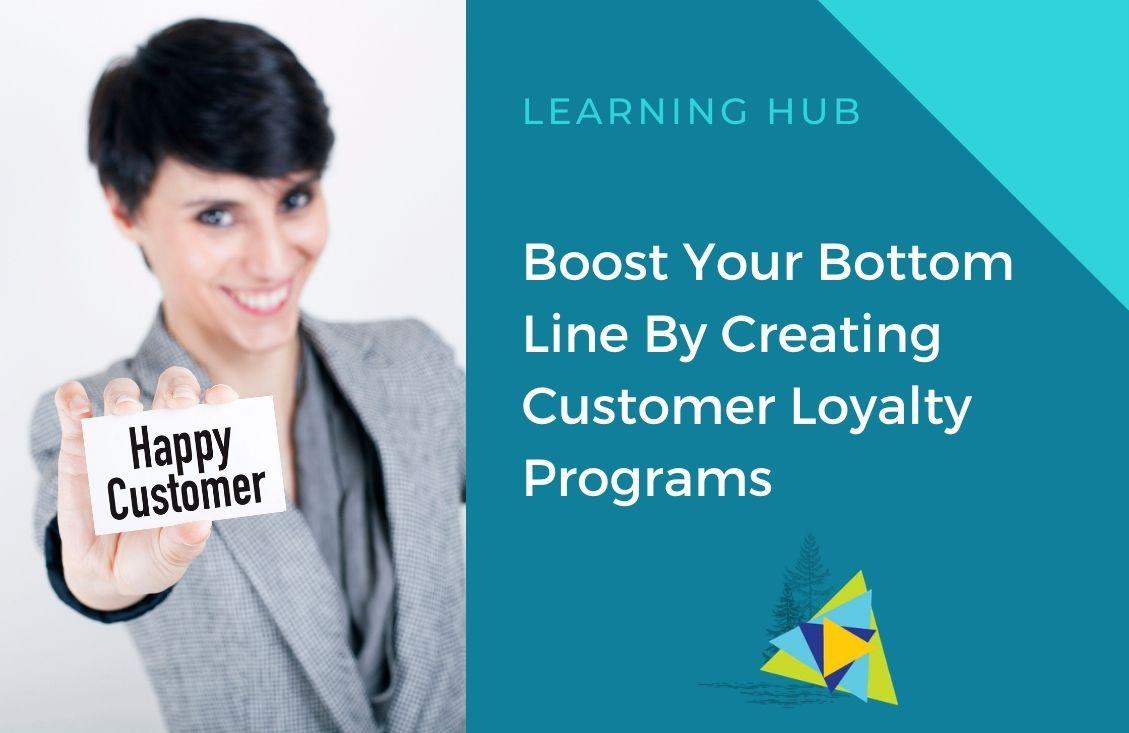 Lac du Bonnet, Manitoba, has a very diverse business sector. From all our storefronts to the countless home-based businesses we may not see every day, we are a bustling business community. We also have many gaps yet to fill, and that is where you can find your business success.
Lac du Bonnet, Manitoba, has a very diverse business sector. From all our storefronts to the countless home-based businesses we may not see every day, we are a bustling business community. We also have many gaps yet to fill, and that is where you can find your business success.
Deciding to start your own business can seem like a daunting undertaking, whether you’ve done it before or not. Luckily, many support systems are available in Lac du Bonnet to help you through the process. The Lac du Bonnet Community Development Corporation is one of those support systems. We love Lac du Bonnet, and we love business. Working with our business community and aspiring entrepreneurs to help them grow and develop is one of our organization’s most rewarding commitments to the community.
Developing your own company, becoming your own boss, and creating employment opportunities for others can have a powerful impact on your life, the lives of those around you, and those in our community. Starting a business is more than a way to create an income for yourself. It is a way to fill a gap by providing a product or service that will make the lives of our residents more complete.
If you are considering starting a business, we’re here to help you, from working with you to conduct market research and develop your business plan to connecting you with partners and launching your business.
If you want to start a business but don’t know where to start, here is the 11-step process to get you from idea to business launch.
1. Identify Your Business Idea
Some of you may already know the type of business you want to start, but if you don’t, that’s okay too. Some people inherently know that they are built for business ownership. If you need to decide what you want to build, you can:
Rely on your strengths. We all have skills that we excel at, and we can use those skills to develop a business plan. Do you have immeasurable organizational skills? Perhaps you can develop a Virtual Assistant business. Maybe you are a skilled carpenter who can start a general maintenance and repair or custom install business.
Take stock of your hobbies. What do you like to do in your spare time? Can you develop products or services that relate to your hobbies? Do you enjoy getting outside to explore nature and take amazing landscapes? Perhaps you can sell your images with the help of a print-on-demand service. Maybe you prefer spending your time in the kitchen creating sinfully delicious desserts. Perhaps you can partner with a local restaurant or sell your baked goods at the Lac du Bonnet Farmer’s Market.
Examine franchise opportunities. Sometimes entrepreneurs want to examine a more turn-key operation that comes with brand recognition built in, has a developed business model, and provides a large support network. Franchise opportunities are a great way to start a business. A quick Google search will provide you with countless possibilities.
Explore community gaps. Ask yourself what is missing from Lac du Bonnet’s business sector and explore the possibilities of filling those gaps. One core industry getting a lot of attention right now is the tourism industry. We have a lot of great assets and hundreds of thousands of visitors every year. What business can you start that would serve these visitors?
Remember, all you need is an idea to get the ball rolling. Many entrepreneurs launch with a single signature product or service and grow over time by adding more.
2. Conduct Market Research
Market research is an important next step that often gets overlooked. Your goal is to validate your business idea during this business planning phase. Through this research, you will identify and learn about topics such as product design, branding, advertising concepts, sales channels and customer service. You will also be able to identify your target market, competitors’ strengths and weaknesses, consumer demand and buying cycles, and key industry information.
Market research will require various methods, including surveys, researching online, conducting focus groups and more. The more you research, the more you will learn about how your business will serve the market and the business model that best suits your development and growth.
The BDC has a great article describing the methods of conducting market research.
3. Research Licenses and Government Regulations
Your business is subject to the laws governing business and the industry you are entering. For instance, a food service business must follow specific licensing and regulations to handle food or serve alcohol. Insurance providers are another barrier, depending on the business you are examining. For example, a horse ranch offering riding lessons will have to conduct considerably more research to find an insurance provider and incorporate procedures to satisfy insurance providers’ obligations.
4. Determine Your Business Structure
Your business structure influences key parts of your business, from taxes to operations and your liability. Choosing whether your business will be a sole proprietorship, a partnership, or if you will incorporate your business is an important decision. It should be determined early in the planning process.
A sole proprietorship may be great if you’re the only person involved in the business. If there are multiple people involved, you will want to examine the partnership structure or possibly incorporating it. An accountant or lawyer can be very helpful in this stage. They can help you evaluate the different options to decide what works for your business and the industry you are entering.
5. Find a Business Name
Once your idea has been verified, it’s time to move into the development stage. The first thing you’ll want to do is determine and register your business name.
Your business name should be short and memorable, not being used by anyone else. Strong business names have a few similar characteristics:
They are short and simple. You want your customers to remember your business name. Avoid business names that are too long; one to four words are ideal. Avoid using hard-to-pronounce words as well; this includes last names that are tricky to pronounce.
They are different. If your industry seems to have many companies with similar naming practices, it can be helpful to avoid following suit and making a name for yourself that defies the norm, which will help you stand out in a sea of commonness.
They are original. You don’t want to give your business a name that already exists, and the Companies Office won’t let you either. It is important to complete a Request for Name Reservation, where a search will be conducted to ensure your name isn’t already in existence or too similar to another. The next step is to complete the Business Name Registration, which makes the business name yours.
6. Write Your Business Plan
Writing your business plan is the next step, and again, one that often gets ignored because it is a lot of work. Successful businesses have business plans. They are crucial to your business creation process because they get you to sit down and think your business through in a methodical way.
Dwight Eisenhower said, “planning is everything; the plan is nothing.”
This statement couldn’t be more correct. It is not the physical document that will benefit you and your business but the planning that goes into creating it. We all know that no matter how much effort we put into creating a straight line to get from point A to point Z, we all wind up with many forks in the road and decisions to make that will get us off course.
The plan helps us navigate through the proverbial forks that will lead us to point Z. The planning and research that goes into creating the business plan will set you up for success. It will help you examine and set up your marketing plan, detailing how you will market to your customers. It will help you determine how many employees you will need and what their roles will be. It will help you maximize your profits by comparing them directly to the expenses. It will also help you plan for barriers so that you have a better idea of how to work around them.
If you are looking for investors to fund the initial startup costs associated with your business, they’ll want to see a business plan, whether it’s the bank or even a family member or friend.
Community Futures Winnipeg River, in Lac du Bonnet, provides business development support as well and has developed a Business Plan Workbook that you can use to develop your plan.
7. Understand Your Business Finances
I think it’s safe to say that your want to start a business to make money. Cash flow management and projected profit/loss statements will be two key financial documents you will want to be familiar with. These are both key parts of the business plan and are the most important pieces to examine. It’s scary to watch new entrepreneurs open their doors without a clear understanding of their expenses or how much money they need to bring in to turn a profit. Working with cash flow and profit/loss statements (even while making predictions during the business planning stage) will tell you a lot about your business, feasibility, and ability to turn a profit.
8. Find Funding for the Initial Startup
Once you have completed your business plan and Financial Forecasts, you can begin looking for investors to help you with your business. Not all entrepreneurs will require outside investors or bank loans to get going, but if you do, you are ready for it because you’ve done your homework.
9. Build Your Team and Start to Develop Your Foundation
A lot of work goes into this phase of launching your business. This is the fun part that gets us out of research and planning and into creating and building. During this planning phase, you want to hire your team to help with the workload or hire consultants to help handle certain parts of the business development that you don’t want to or can’t complete by yourself.
This phase of the business startup includes things such as:
- Creating a logo and building your company’s website
- Photographing products for marketing materials, your website, and your eCommerce store
- Hiring employees or contractors to help you with the operations of the business
- Creating marketing materials such as business cards, postcards, newspaper ads and more
- Getting your online marketing tools in order, such as social media, email marketing, Google My Business
- Training staff to complete their roles in the business
- Setting up your point of sales, bookkeeping, and payroll systems
- Finding a storefront location or setting up your home-based workspace
10. Develop Your Product or Service
This phase generally runs congruently with step 8 but warrants a little more attention. This phase of development will vary, depending on your business model and what you are selling. For some, it will mean creating the product(s) to sell by hand or sourcing original products from a manufacturer. For others, it will mean purchasing inventory and stocking shelves. This phase will mean tweaking the services for those offering services and ensuring accurate descriptions are produced to tell customers what the service is.
One key component of this phase of starting a business is to let it happen, whether you have one product or service or ten ready to go. In the service industry especially, we see many entrepreneurs hold up their success by not launching the one service that is polished and market-ready while they continue to build and develop the next five.
Hitting the market and opening the doors with a minimal viable product (MVP), a product with enough features to attract early-adopter customers and validate a product idea early in the product development cycle, is perfectly acceptable. Developing MVP is part of a different approach to traditional business startups called the Lean Startup approach, created by Eric Ries.
While we won’t go into too much detail about this method today, the Lean Startup provides a scientific approach to creating and managing startups and getting the desired product to customers’ hands faster. The Lean Startup method teaches you how to drive a startup-how to steer, when to turn, and when to persevere and grow a business with maximum acceleration. It is a principled approach to new product development. This process can be applied to product development or service-based businesses. To learn more about it, check out The Lean Startup.
11. Launch Your Business
Congratulations! You are now the proud owner of your very own business! We know that it has taken a lot of work to get to this point, and there is only one last thing you need to do – open up shop with a Launch.
Launching your business can happen in a variety of ways. Perhaps it’s taking your eCommerce website live and starting the digital marketing campaign to attract customers to your site. Or maybe it’s a Grand Opening Celebration happening at your retail location.
No matter where you are, marketing your launch will be the difference between having a few people randomly show up and attracting hundreds of people to check you out.
Promote your business using free channels available to you, like social media, emailing your contacts, creating a press release and so on. You can also consider offering discounts to help you get traction early on – perhaps you could offer a discount if customers leave a review or testimonial for your business online. Start testing your paid ads to find out which ones connect with your customer base. Even starting with a small advertising budget is better than not spending any money on marketing. It would help if you got in front of your target customer so that they know you have products and services they need.
Starting a business may not be the easiest thing you’ll ever do, but it probably won’t be the most difficult thing either, especially when there are so many wonderful resources you can count on for support. Whether you want to introduce a new product to the world, build a profitable business to be self-employed, create business opportunities for Lac du Bonnet, or earn some extra money to pay for that dream vacation of yours, these are the steps on how to start a business and help make your dreams a reality.
The Lac du Bonnet CDC is always an email or phone call away to help you through the process. Whether you need someone to bounce ideas off or need more guidance to get you from point A to Z, our team of business developers and business owners is here to help you.


